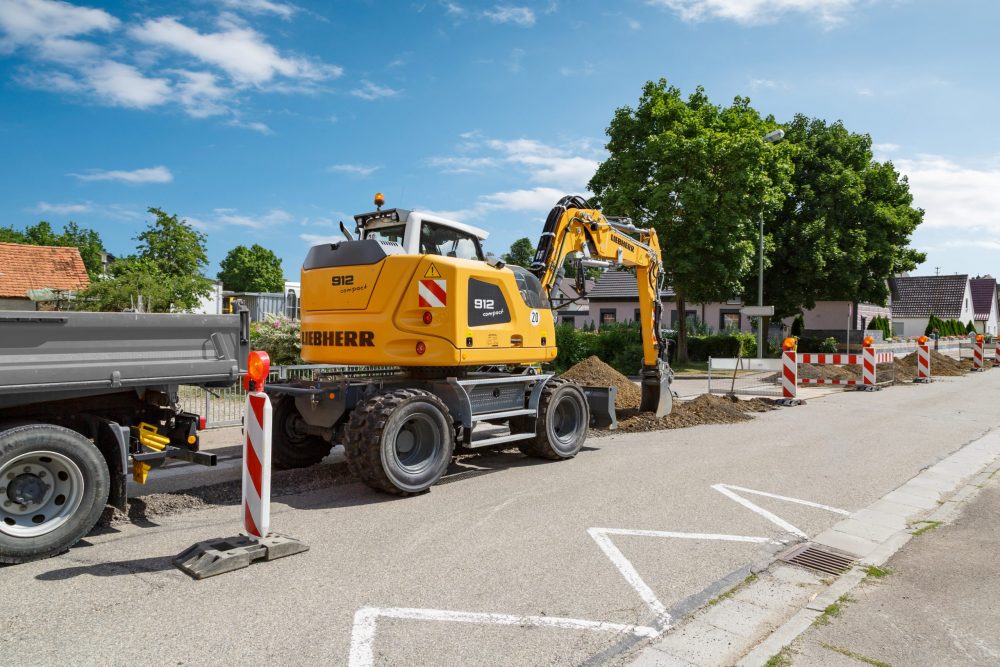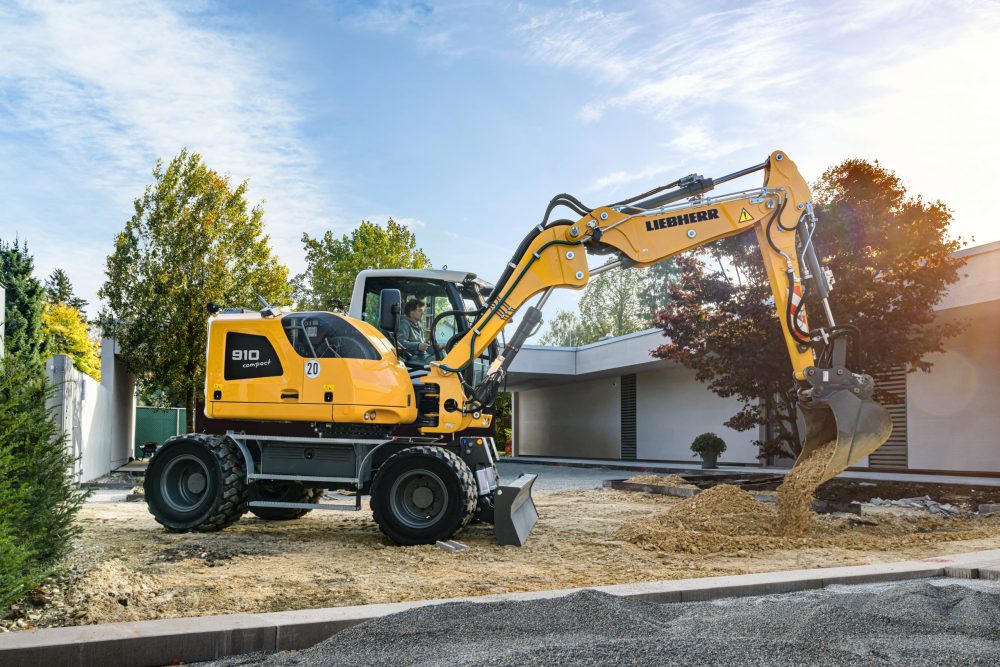Liebherr’s new Compact Wheeled Excavators feature Stage V exhaust emissions
Whether it is confined construction sites in the city centre, road construction or classic earthmoving work, Liebherr Compact wheeled excavators are the ideal assistants in this area.
For even greater performance and flexibility, Liebherr implemented numerous optimisations in the two Compact wheeled excavators in the course of the changeover to the new Stage V exhaust emissions standard.
The A 910 Compact Litronic and A 912 Compact Litronic wheeled excavators are the two smallest models in the Liebherr Compact range. The A 910 Compact has an operating weight from 12,100 to 13,100 kg and an engine power of 85 kW / 116 hp. The A 912 Compact is the next biggest machine with an operating weight from 13,000 to 14,200 kg and an engine power of 90 kW / 122 hp.
Resource-friendly
The 4-cylinder in-line engine installed in both Compact wheeled excavators is very environmentally friendly with its low fuel consumption. Liebherr Power Efficiency also ensures optimal efficiency of the drive components in the new Compact wheeled excavators in every work situation. It enables machine operation in the range of the lowest specific fuel usage for lower consumption and greater efficiency with the same performance.
In order to observe the strict statutory emissions standards of Stage V, at Liebherr the latest engine technology is used: the innovative exhaust emission control system combines a diesel oxidation catalyst and a diesel particulate filter with a SCR catalytic converter for the reduction of particles and nitrogen oxide for optimal protection of people and the environment against exhaust gas pollutants.

Compact and high-performance
In the course of the changeover to the new Stage V exhaust emissions standard, the counterweight for the A 910 Compact and A 912 Compact was increased. With the heavier counterweight, the two Compact wheeled excavators impress with higher lift capacities of around 100 kg with maximum jib length. At the same time, the heavier counterweight ensures enhanced stability of the Compact wheeled excavators, which also results in greater stability during dynamic movements.
In order to further increase stability, the two Compact wheeled excavators are available with different supports. The sturdy and radially guided stabiliser blade serves as the ideal stability aid on soft and sandy ground thanks to the large contact area. Whereas on solid ground the outriggers provide optimal stability.
With the individual control an alignment of the Compact wheeled excavator, particularly on uneven terrain, is possible. Also for applications on uneven terrain, the split blade support is also suitable thanks to the individually or jointly controllable blade elements. The stabiliser blade, outriggers and split blade are available in different combinations.
Some of the biggest challenges for machine operators in urban areas are the confined spatial conditions on construction sites. Liebherr Compact wheeled excavators are designed with reduced tail swing for such applications. The tail swing for the two Compact wheeled excavators is only 1,675 mm. In addition, the front swing radius was reduced by another 70 mm so that the entire envelope circle is under 5,000 mm for both machines.
Despite the compact machine dimensions, the A 910 / A 912 Compact machines have high digging forces, also in hard ground. Liebherr Compact wheeled excavators can therefore be used universally on every construction site.

Focus on flexibility
The optional all-wheel steering and crab steering offer significantly increased manoeuvrability and flexibility, especially for work in city centre areas and in confined spaces. With the all-wheel steering the steering lock of the front and rear axles is effected in the opposite direction so that only a very small turning radius is needed during steering.
In crab steering the steering lock of the front and rear axles is effected in the same direction so that the machine can move sideways.





























